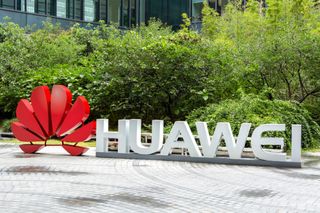Huawei employees allegedly aid cyber espionage in Africa
Encrypted messages were intercepted and cracked enabling the scuppering political protests

Huawei employees have allegedly been helping African governments spy on their opposition using its own technology and other spyware to break into encrypted messages and scupper political protests.
Security officials working in direct contact with the Huawei employees have spoken out against those from the embattled Chinese tech giant inserted into the Ugandan and Zambian cyber security forces for helping governments hack, track and halter their opposition, according to a Wall Street Journal investigation.
In one instance, Huawei technicians were allegedly drafted in to help Ugandan cyber surveillance teams intercept encrypted communications sent and received by Bobi Wine, a musician-cum-political activist and highly outspoken opponent of the Ugandan government.
The report revealed that Ugandan security officials unsuccessfully tried for days to hack into Wine's Skype and WhatsApp groups - in which he organised political rallies in coded slang - before turning to Huawei employees for assistance.
"The Huawei technicians worked for two days and helped us puncture through," said one senior officer at the surveillance unit to the WSJ.
The employees who helped hack Wine have since been arrested and their names included in police reports which have been withheld from the wider media.
In hacking the encrypted messages, authorities were able to deploy forces to stop secretly organised street rallies and, in one case, Wine from drafting in 11 lawmakers to speak at one of his concerts.
Get the ITPro. daily newsletter
Receive our latest news, industry updates, featured resources and more. Sign up today to receive our FREE report on AI cyber crime & security - newly updated for 2024.
"It was very clear he was organising a political event, not a music show. We had to act quickly," one of the officials said.
Wine has said the surveillance has spread to his family and has now resorted to alternative tactics in order to stay under the government's radar such as swapping phones and even using devices belonging to members of the public while on the move to evade surveillance.
"The deal with Huawei is a survivor strategy to consolidate power," said Wine. "It's an all-out assault."
It was much the same in Zambia, Huawei technicians, who have now also been arrested but not publicly named, were accused of helping the government break into the phones and Facebook pages of a blogging group which ran a news site publishing criticism of President Edgar Lungu.
According to the WSJ, the operation was conducted out of a surveillance unit in Zambia's telecoms regulator which tracked bloggers locations, ultimately leading to their arrest. It followed an April crackdown, under President Lungu's command, to neuter news sites that published pro-opposition stories after a long period of stable democracy in the country.
The agency responsible for tackling the spread of these damaging stories was Zicta, Zambia's Information and Communications Technology Authority, around half of the staff of which are Huawei employees.
"Whenever we want to track down perpetrators of fake news, we ask Zicta, which is the lead agency," said Antonio Mwanza, Zambia's ruling party spokesperson. "They work with Huawei to ensure that people don't use our telecommunications space to spread fake news."
Huawei first arrived in Africa in 2000, securing the contract for the Ugandan government's sole IT provider eight years later. The report states that after President Museveni expanded digital snooping in 2017, police officers were sent for training in Beijing and then visited Huawei's Shenzhen headquarters to hear about the company's surveillance systems.
Huawei executives allegedly told Uganda to look at Algeria's mass monitoring surveillance systems, supplied by Huawei. Ugandan officers spent time in Algeria doing just that, before co-producing a classified report between Uganda and Algeria titled 'Huawei's intelligent video surveillance system'.
"We completely reject the Wall Street Journal's unfounded and inaccurate allegations against Huawei's business operations in Algeria, Uganda, and Zambia," said Huawei in a statement to IT Pro. "Huawei's code of business conduct prohibits any employees from undertaking any activities that would compromise the data or privacy of our customers or end users, or that would breach any laws.
"Huawei prides itself on its compliance with local laws and regulations in all markets where it operates and we will defend our reputation robustly against such baseless allegations."
However, the revelations come after a period of calm as regards Huawei's reputation as an alleged international cyber espionage outfit, operating on behalf of the Chinese government.
The US has currently placed Huawei on a trade blacklist but in the last few weeks, reports suggested that US companies would be able to apply for licences to once again trade with the tech giant, indicating the White House would loosen its sanctions that have had ramifications on the global supply chain.

Connor Jones has been at the forefront of global cyber security news coverage for the past few years, breaking developments on major stories such as LockBit’s ransomware attack on Royal Mail International, and many others. He has also made sporadic appearances on the ITPro Podcast discussing topics from home desk setups all the way to hacking systems using prosthetic limbs. He has a master’s degree in Magazine Journalism from the University of Sheffield, and has previously written for the likes of Red Bull Esports and UNILAD tech during his career that started in 2015.




